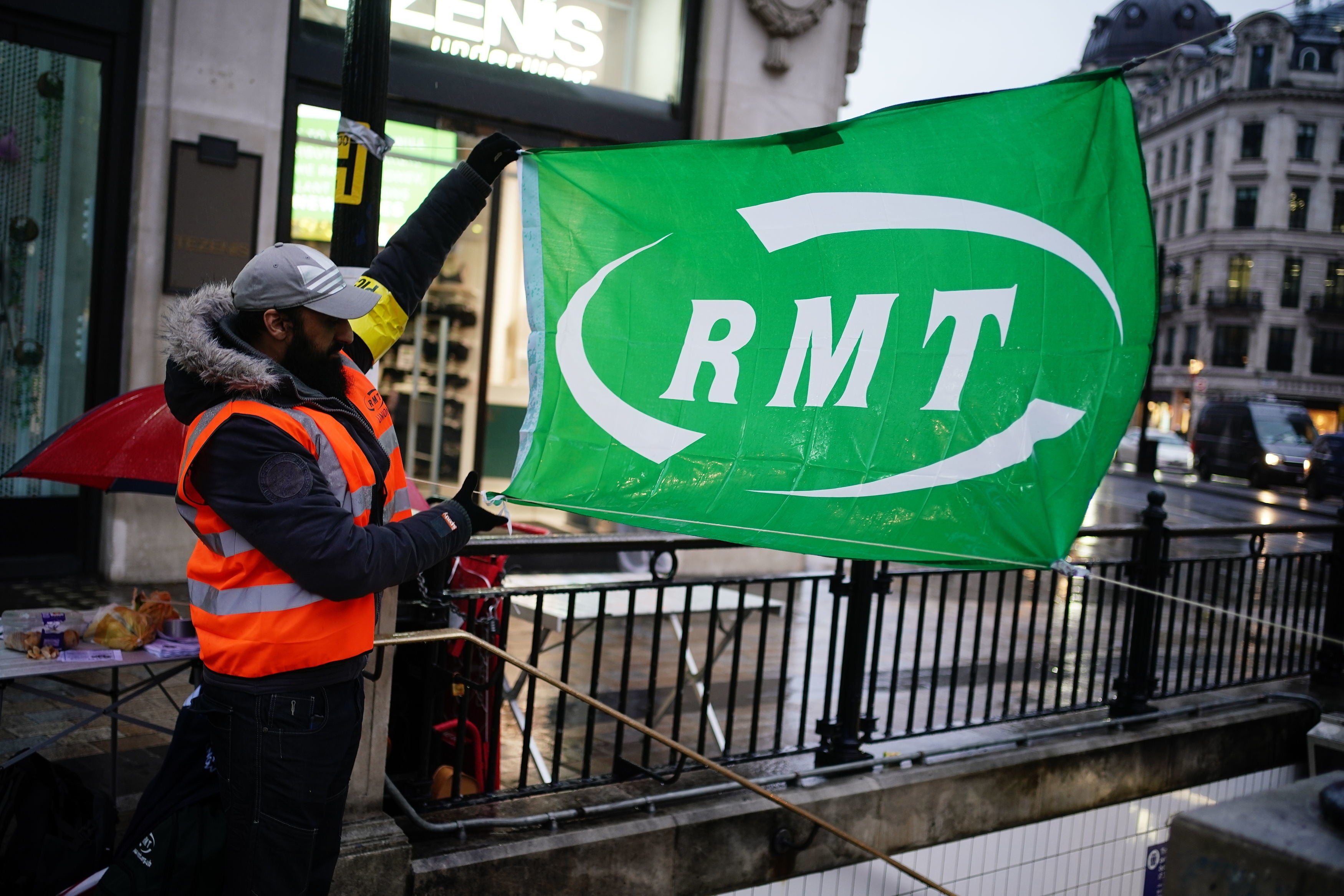Plan to prevent food shortages amid fears of ‘biggest rail strike in modern history’
RMT general secretary Mick Lynch warned that ‘a national rail strike will bring the country to a standstill’

Your support helps us to tell the story
From reproductive rights to climate change to Big Tech, The Independent is on the ground when the story is developing. Whether it's investigating the financials of Elon Musk's pro-Trump PAC or producing our latest documentary, 'The A Word', which shines a light on the American women fighting for reproductive rights, we know how important it is to parse out the facts from the messaging.
At such a critical moment in US history, we need reporters on the ground. Your donation allows us to keep sending journalists to speak to both sides of the story.
The Independent is trusted by Americans across the entire political spectrum. And unlike many other quality news outlets, we choose not to lock Americans out of our reporting and analysis with paywalls. We believe quality journalism should be available to everyone, paid for by those who can afford it.
Your support makes all the difference.Contingency plans have been put in place in a bid to prevent food and petrol shortages after the RMT warned that “potentially the biggest rail strike in modern history” could hit the network next month.
The trade union has balloted its 40,000 members for strike action in a vote that closes on Tuesday next week. The Transport Salaried Staffs’ Association is also consulting staff on a possible strike and said it will co-ordinate with the RMT.
The looming action has caused rail bosses to start making plans such as prioritising freight trains over passenger services to ensure petrol and food supplies do not run short.
It is understood that transport minister Grant Shapps will meet with Boris Johnson and Rishi Sunak next week to discuss the situation, The Times reported.
If the ballot is successful there has been no indication from the RMT when strike action could begin, however it could not take place during the long Queen’s jubilee weekend as two weeks’ notice must be given before industrial action.
The RMT balloted members because it said that Network Rail is planning to cut at least 2,500 safety-critical maintenance jobs as part of a £2bn reduction in spending, while workers at train operators have been subject to pay freezes and changes to their terms and conditions.
In late April, RMT general secretary Mick Lynch said: “Railway workers have had to contend with pay freezes, the prospect of losing their jobs and repeated attacks on their terms and conditions.
“Removing 2,500 safety-critical jobs from Network Rail will spell disaster for the public, make accidents more likely and will increase the possibility of trains flying off the tracks.”
He added: “The way for trade unions to effectively take on the cost of living crisis is to stand up for their members at work and take industrial action when employers are not moved by the force of reasoned argument.
“A national rail strike will bring the country to a standstill, but our members’ livelihoods and passenger safety are our priorities.”
The ballot covers RMT members on Network Rail and Chiltern Railways, Cross Country Trains, Greater Anglia, LNER, East Midlands Railway, c2c, Great Western Railway, Northern Trains, South Eastern Railway, South Western Railway, Island Line, GTR (including Gatwick Express), Transpennine Express, Avanti West Coast, and West Midlands Trains.
Tim Shoveller, Network Rail’s regional director, said: “Our railway has been hit hard by the Covid-19 pandemic, and even as passenger numbers start to recover, we know travel habits and passenger demand have changed and the industry has to change too.
“We cannot keep relying on government handouts, and so we must work together with train operators and our trade unions to save millions of pounds and deliver a more efficient railway.
“Our modernisation programme aims to build a sustainable future that delivers for passengers and creates better and safer jobs for our people.
“We would not consider any changes that would make the railway less safe.”
Join our commenting forum
Join thought-provoking conversations, follow other Independent readers and see their replies
Comments